Maybe you have, maybe you haven’t taken note of it, but the Academy Award nominations will be announced tomorrow morning, Tuesday January 25, 2011. This will be the 83rd time the Oscars have been handed out, so as befits the occasion, I figured I’d take a look at the film in the Eclipse Series that easily holds the record for most nominations for that particular trophy. It’s also the oldest title found in the Eclipse line – 1929’s The Love Parade, from Eclipse Series 8: Lubitsch Musicals.
The Love Parade earned six chances to carry home an Oscar in 1930, at that time the most noms ever earned by a single film. (Granted, it was only the third time that the Oscars had been awarded, and the record only stood for one year, when Cimarron was named in seven categories, winning two, including Best Picture.) The Love Parade also carries the distinction of getting stiffed when the statues were handed out, a tradition that’s also carried on to this day, though no one aspires to it, for obvious reasons.
But The Love Parade is most fondly and appropriately remembered as the first true musical , as the genre has come to be defined these days, using songs to advance the narrative, rather than incorporating them as diagetic samples of stage entertainment (as was the case with the first feature-length talkie, The Jazz Singer.) Its director, the German-born Ernst Lubitsch, arrived in Hollywood in 1922, and was already an accomplished and respected director in the silent era, but his fame and fortune were on the verge of climbing much, much higher as he went on to direct some of the wittiest and most successful comedies of Hollywood’s Golden Age. The Criterion Collection has managed to snag a pair of his later offerings, but this Eclipse box predates all of those titles. They demonstrate his prowess as an innovator who helped establish one of the most imitated templates in cinema history as he wrote the book on how to transfer music hall theatrical traditions onto the Silver Screen.
Highly aware of the effect his Continental mix of risque scandal and titillation would have on American audiences, Lubitsch proved himself the master of pushing the limits of censorship in the Pre-code Era. The Love Parade lives up to the innuendo packed into its title by unleashing a continuous roll-out of naughty double entendres and gleefully sexy insinuations that never resort to vulgarity but clearly aim below the belt. Taking advantage of both the residual uptightness inherited from the Victorian era and the last flare-up of Roaring 20s frivolity (just months before the Wall Street stock market crash and the ensuing Great Depression,) Lubitsch and his cast of seasoned entertainers stirred up considerable sensation back in the day (here’s a vintage review from the New York Times, when it debuted at the Criterion Theater in NYC!)
In the process, they created a film that still provides plenty of amusement and charm, even by today’s considerably looser standards. Woven into all the winking and nudging about our erotic foibles is a healthy mix of spoofs on social class distinctions and the emergence of a voyeuristic celebrity culture that’s only grown more predominant in subsequent decades, whether the objects of our fascination are royalty, movie stars or some combination of the two.
The Love Parade‘s actual story is so much fluff, a mere pretext for comedic song & dance, but effective as such. Count Alfred Renard (Maurice Chevalier) has been caught in the midst of one philander too many. A parody of domestic melodrama unfolds as he’s accosted by the high-ranking husband of his latest plaything.
As a result of his indiscretions, he’s recalled from his flimsy diplomatic mission back to the capital of Sylvania, the mythical “somewhere in Europe” sovereignty that has its own distinctive heritage within the annals of showbiz (it was mentioned in Duck Soup, for example.) Taking the latest setback to his amorous pursuits in perfect stride, Count Alfred finds himself a designated candidate for the unenviable position of “Prince Consort” to the unmarried and apparently untameable Queen Louise (Jeanette MacDonald.)
This aristocratic setting gives The Love Parade a welcome satirical edge at the expense of the upper-crust that us plebeians can enjoy and also opened up the opportunity to create some impressive set-pieces and lavish visual displays.
Among the six Academy Award nominations was one for Art Direction, and though it’s probably not among the most heralded aspects of this production, I definitely enjoyed the palace interiors, costumes and large sets that play a big part in creating the air of sophisticated fun that permeates this film.
But let’s be clear – what will make or break this film for the majority of viewers is how you relate to the admittedly quaint and dated entertainment stylings of Chevalier and MacDonald. Both of them were big stars in their times, but Maurice’s ultra-Frenchy mugging and Jeanette’s warbling soprano are probably going to be acquired tastes at best, and hurdles that some just may not overcome (or consider worth the effort.) For my part, I found them both rather amusing in their own way – especially MacDonald, who went on to have a very successful career as both an actress and singer.
With this being her film debut, of course she’s fresher than ever, vibrantly fun in all of her scenes. Though only in her mid-20s, she was already a seasoned Broadway performer and carries herself with great confidence in a role that demanded just the right mix of haughtiness and vulnerability as she’s asked to hold her own amongst the gossipy ladies-in-waiting or her lascivious cabinet of advisors (featuring the great character actor Eugene Palette before he grew to the rotund proportions he’s known for in My Man Godfrey and Heaven Can Wait.)
For a sample of the Chevalier/MacDonald chemistry, check out this clip of The Love Parade‘s title tune. It could serve as a helpful test of your willingness to seek out this film.
But a word of advice: repeated exposure to this song (or the clip that follows a bit lower on the page) could result in the tune getting stuck in your head for awhile! That was my experience anyway, not that I’m complaining at all.
From this successful courtship, the stage is set for a royal wedding, which the leading couple treats more like an inside joke which they’re happy to include us on. But of course, a few wrinkles of tension have to develop, as the Prince Consort comes to recognize that, aside from the “one thing” that Prince Consorts do, that he’s been selected to perform because of his oft-proven success at doing so, there’s really not all that much of an upside to being Mr. Queen Louise of Sylvania.
But the vows have been spoken, and there’s way too much prestige (and money) on the line to undo that which has already been done. Besides that, it’s clear that Alfred and Louise really do have a thing for each other. They just have to figure out a way to make this modernistic 1920s reconfiguration of traditional gender roles work out to each partner’s advantage!
Contrasting with the convoluted mess of expectations and desires that upper-class marriages have to conform to, their respective servants Jacques and Lulu get their turn (after the celebratory and sexually suggestive wedding night cannon firings have subsided) to celebrate the freedom and simplicity of a commoner’s life. The infectious tune and lively vaudeville interplay between limber Lupino Lane and adorably spunky Lillian Roth results in one of my all-time favorite musical bits. A friend of mine remarked that they move like cartoon characters and I think that’s a pretty nice compliment!
As antiquated in its trappings and cultural context as The Love Parade may be, I think it holds up well in its affectionate portrayal of male and female sensibilities. The story’s ending, in which the headstrong woman is brought into a more compliant surface subordination to the whims of her husband, will displease some viewers, but I think the case can easily be made that Queen Louise will find ways to get her needs met and assert her rightful authority.
Look at how amiable he becomes when she dictates to him the terms of the “punishment” she deserves when The Love Parade comes to its end. Count, er that is, Prince Consort Alfred, even with his informal and honorary title of King bestowed at the end, and despite his reputation as an indefatigable ladies’ man, is really a romantic softie when it gets right down to it. And as for Lulu and Jacques, it’s clear enough where the real muscle is flexed in that relationship!


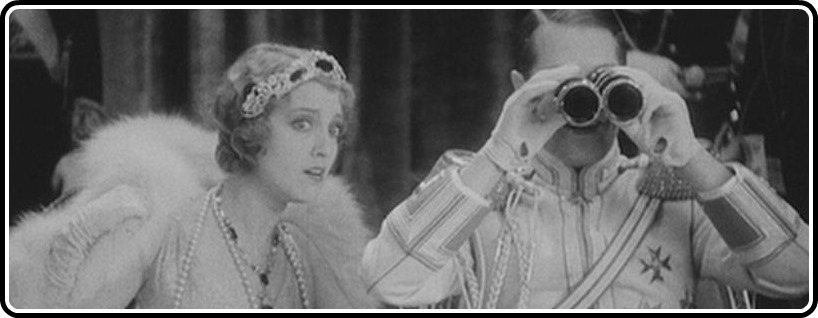
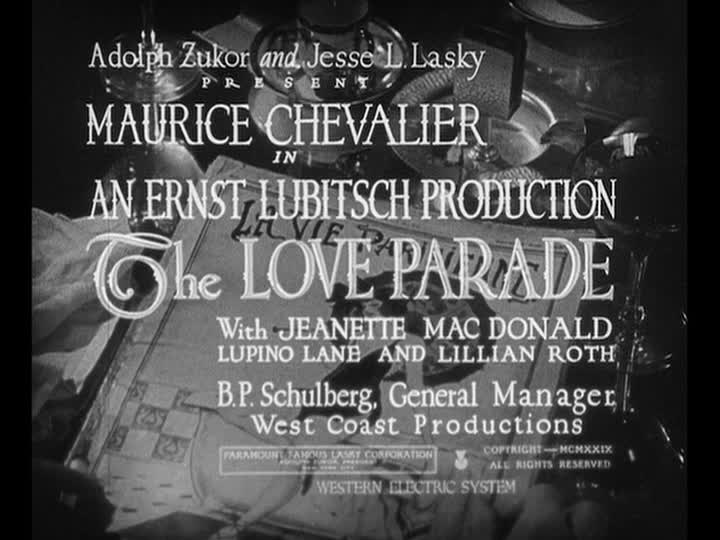
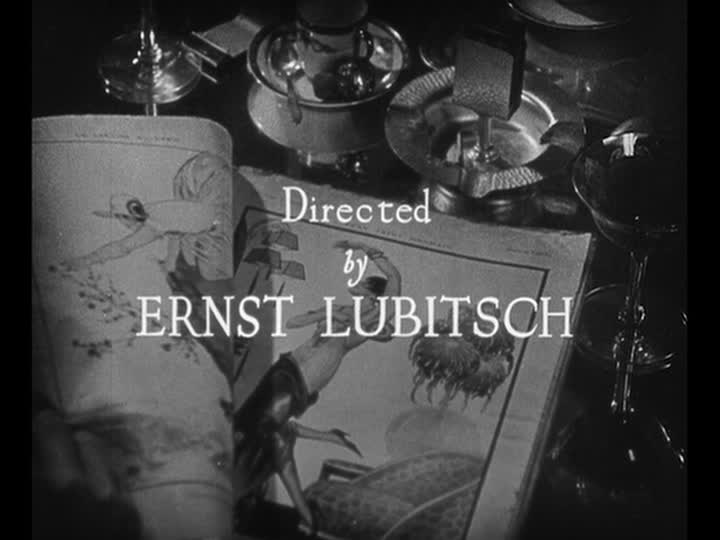
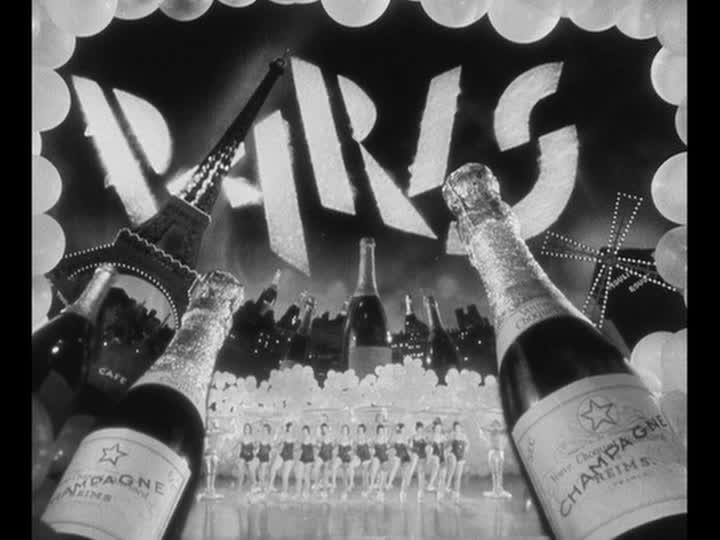
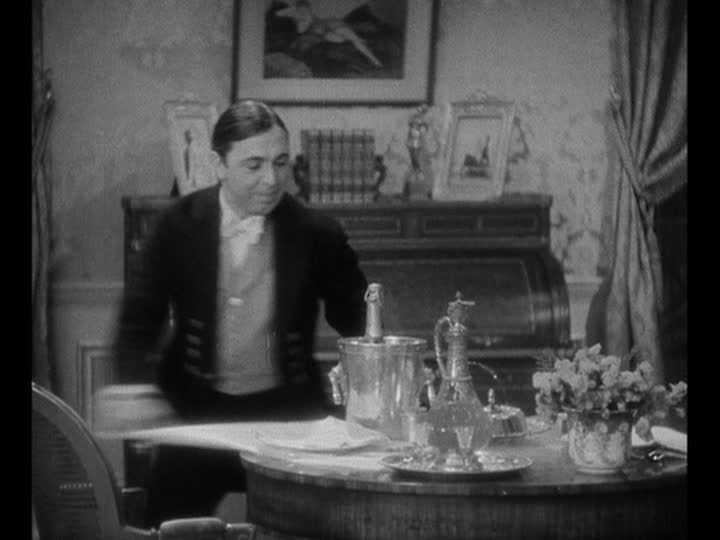
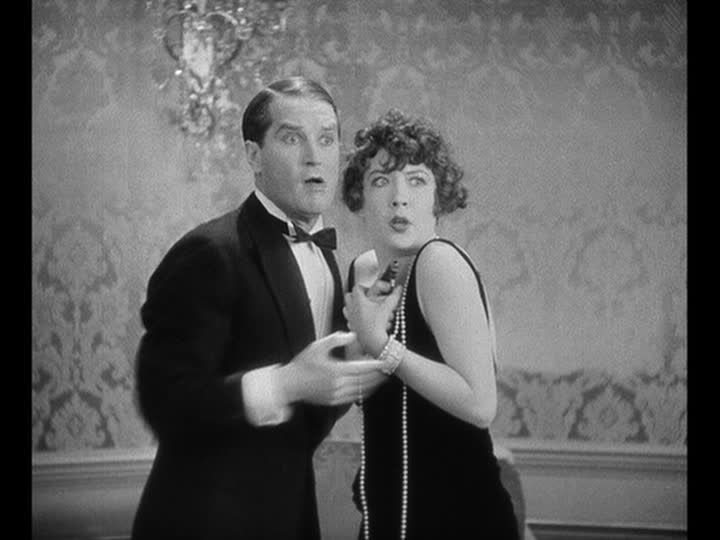
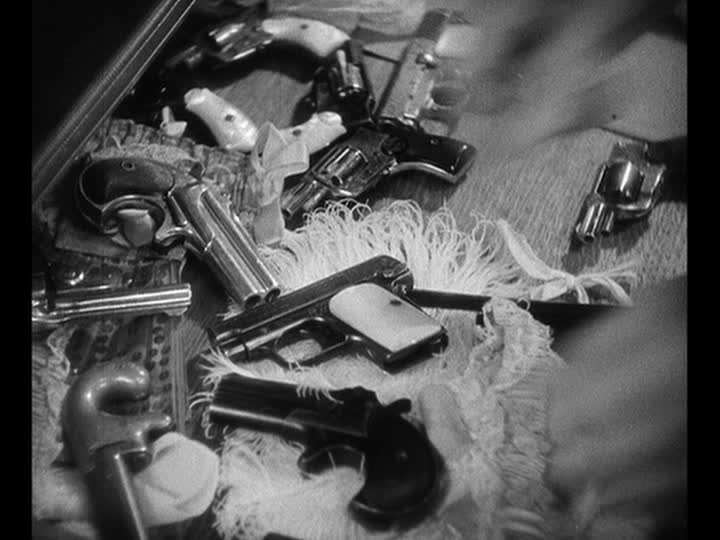
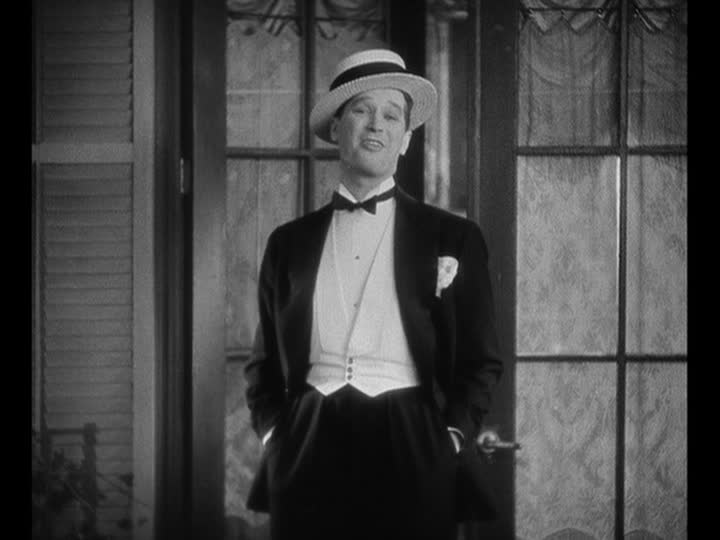
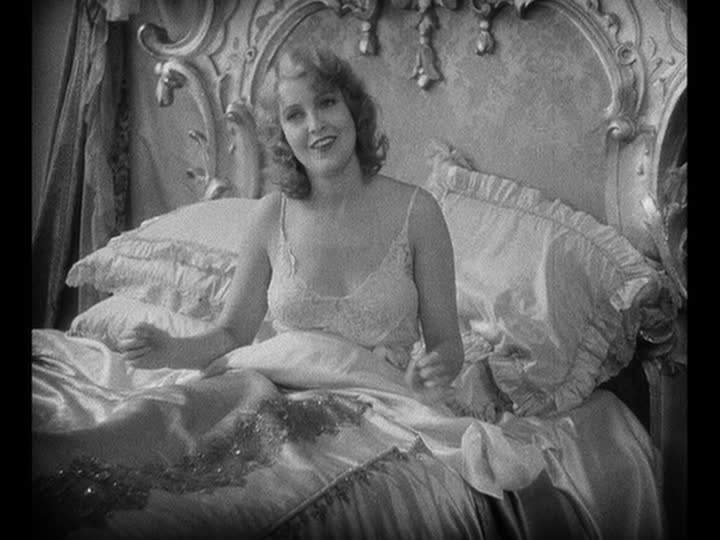
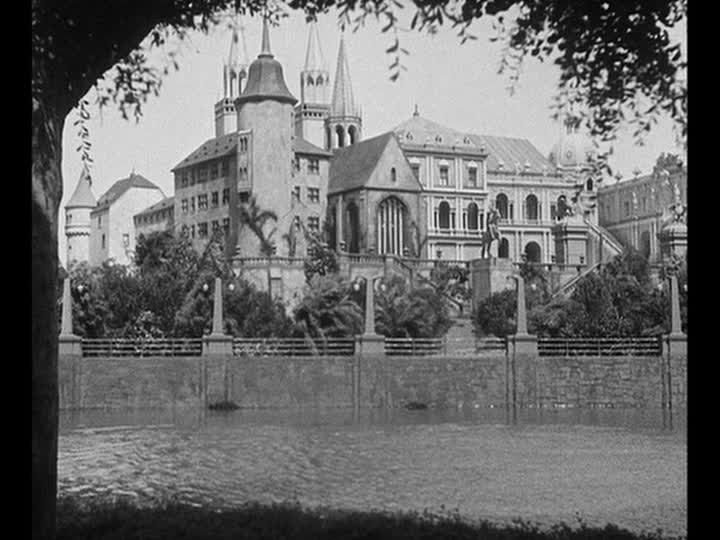
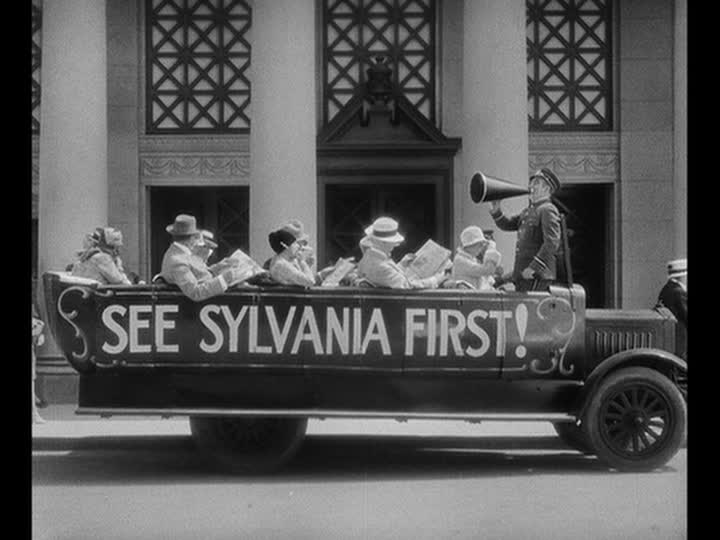
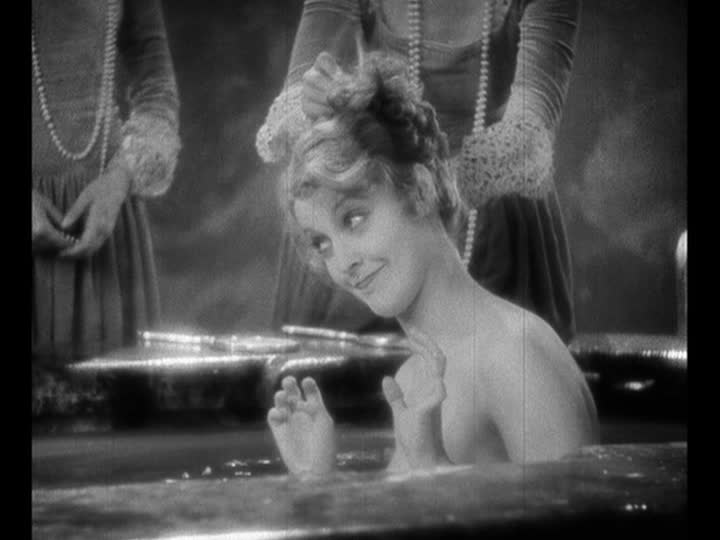
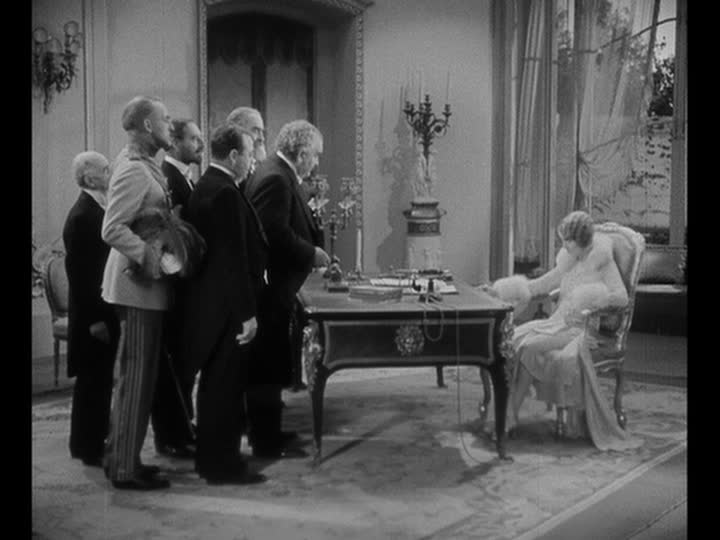
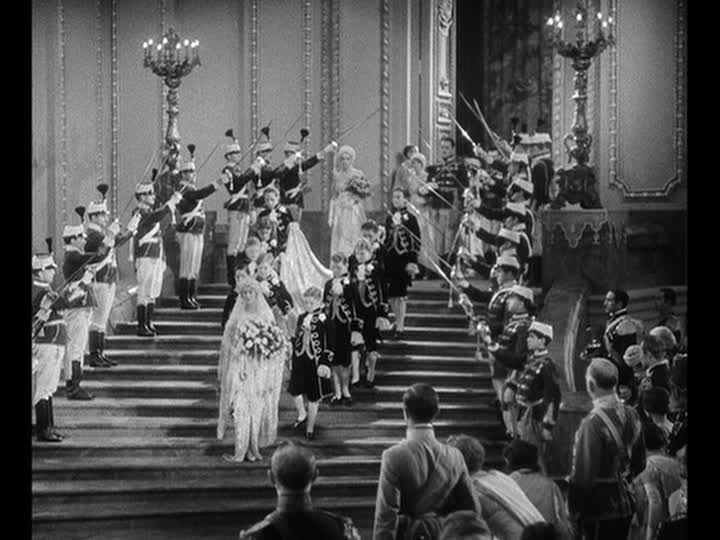

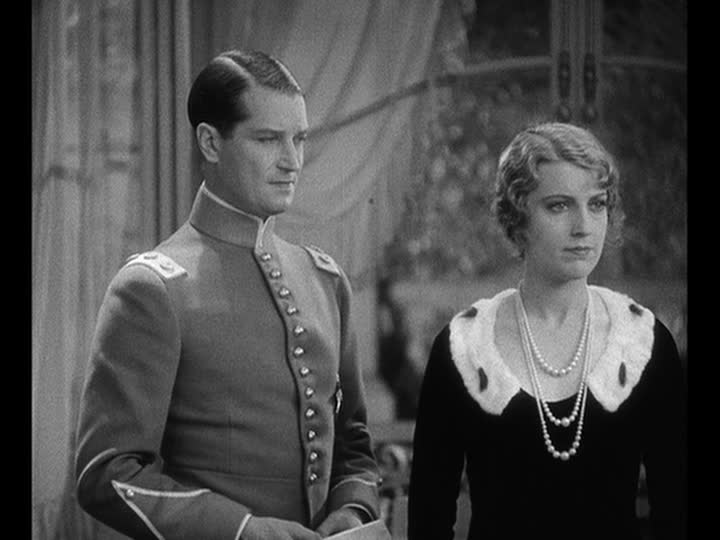
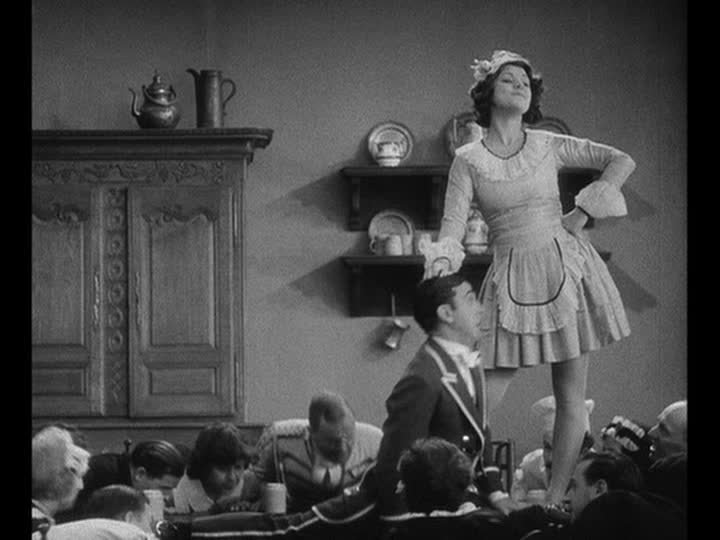

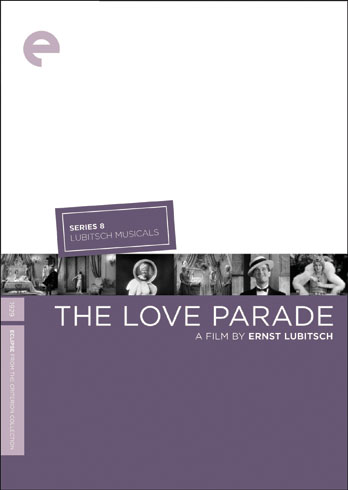

3 comments